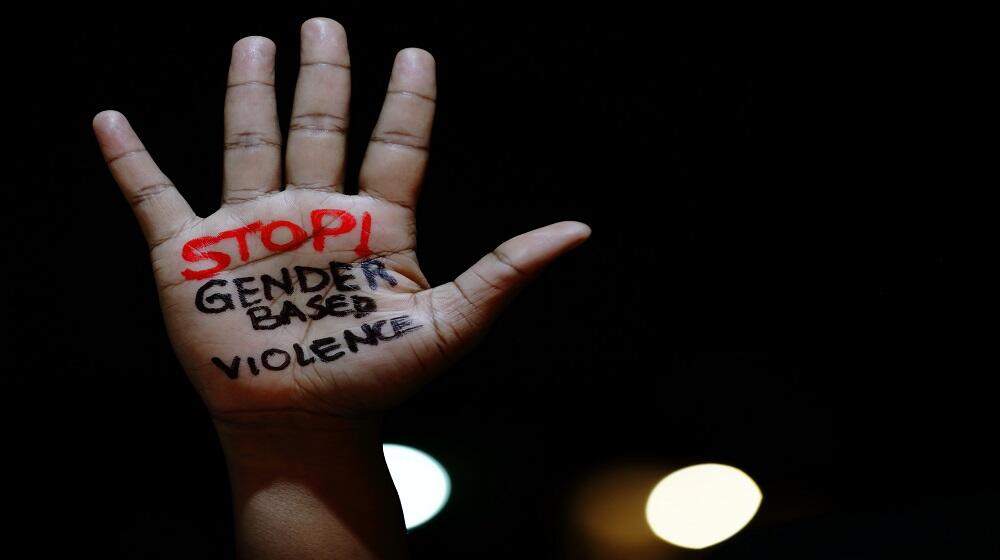"When people asked me where I was going, I told them I didn’t know. I had no home, I had nothing." These haunting words come from a survivor of gender-based violence (GBV) in Lesotho. After enduring relentless sexual abuse by her cousin, which resulted in pregnancy, she found refuge at the Lapeng Care Centre—a sanctuary for GBV survivors.
This young woman’s story is not unique in Lesotho as 86% of Basotho women are estimated to have experienced some form of gender-based violence in their lifetime. The country is ranked third globally in reported cases of rape per capita, and ranks sixth for murder rates—figures that surpass even nations in conflict zones.
Summarising the gravity of the situation, UNFPA Representative to Lesotho, Mr Innocent Modisaotsile explained that the statistics show that nine out of 10 women in Lesotho have experienced gender-based violence in their lifetime.
The Representative was speaking during a resource mobilization event for the establishment of a Multi-Purpose Centre in Maseru. The centre, set to open in December 2024, will offer comprehensive services to GBV survivors, including psychosocial support, medical care, and livelihood skills-building. The initiative forms part of a joint United Nations GBV program focused on strengthening policy and legal frameworks, prevention, bolstering women’s rights, and providing comprehensive GBV response services.
Further outlining the situation, Mr Modisaotsile added that the situation in Lesotho is also unique as in most prisons, one out of two men is there due to sexually related charges. In Lesotho, 44% of male prisoners in are sexual offenders (Afrobarometer 2022) while 47% of the total murdered women are killed by an intimate partner (Barometer 2021) as against 38% globally WHO (2018). The figures paint a distressing picture of the situation women face daily, a deeply entrenched issue that affects the most vulnerable in society—women and girls.
Mr Modisaotsile added, “one of the unique features of gender based violence in Lesotho is that we have a significant number of fathers sexually abusing their children.”
However, a vision for change is emerging. "We have dreamed of creating a sanctuary where survivors can find safety, support, and a chance to rebuild their lives," Mr. Modisaotsile said, underscoring that the centre will be more than just a shelter. It will be a multi-purpose, human-centred space designed to restore dignity to survivors, particularly women and children.
Speaking at the same occasion, the United Nations Resident Coordinator, Amanda Khozi Mukwashi, articulated the ideals that inspired the centre’s conception. "Every human being is born equal in dignity and rights," she asserted, emphasizing the fundamental importance of preserving the dignity of each individual. "No one has the right to take away our integrity and dignity." She firmly stated that eradicating GBV must not rest on the shoulders of a few or even a single organization; it is an all-encompassing challenge that demands collective responsibility saying, "we cannot address GBV in isolation. It requires the effort of every individual and organization."
She made a heartfelt appeal to Lesotho’s private sector for their support, pointing out how GBV not only affects individuals but also impacts economic productivity. "Businesses are not immune to the effects of GBV, and we need everyone’s involvement," she added.
The, Minister of Gender, Youth, and Social Development Honourable Pitso Lesaoana, echoed the same sentiments, highlighting that the current facilities, like the Lapeng Care Centre, lack the capacity to deliver integrated services effectively. "This centre will accommodate various categories of survivors, providing temporary refuge where women, children, adolescents, and teenage mothers can find safety and support," he stressed.
The resource mobilization initiative aimed to garner support from the private sector for the Multi-Purpose Centre. Opportunities for contribution ranged from adopting a home for renovation to provide a conducive environment for recovery, to pledging financial resources, and donating materials like building supplies and furniture.
For those like the young woman at the Lapeng Care Centre, the journey toward healing and rebuilding a life can be long and painful. Yet, hope exists. The forthcoming Multi-Purpose Centre is poised to offer a crucial lifeline, one that transcends basic shelter by providing an integrated, supportive environment for holistic recovery.
As the United Nations sexual and reproductive health agency, UNFPA remains at the forefront of this vital work, promoting access to sexual and reproductive health services, advocating for legal reforms, and ensuring comprehensive care and support for GBV survivors.


